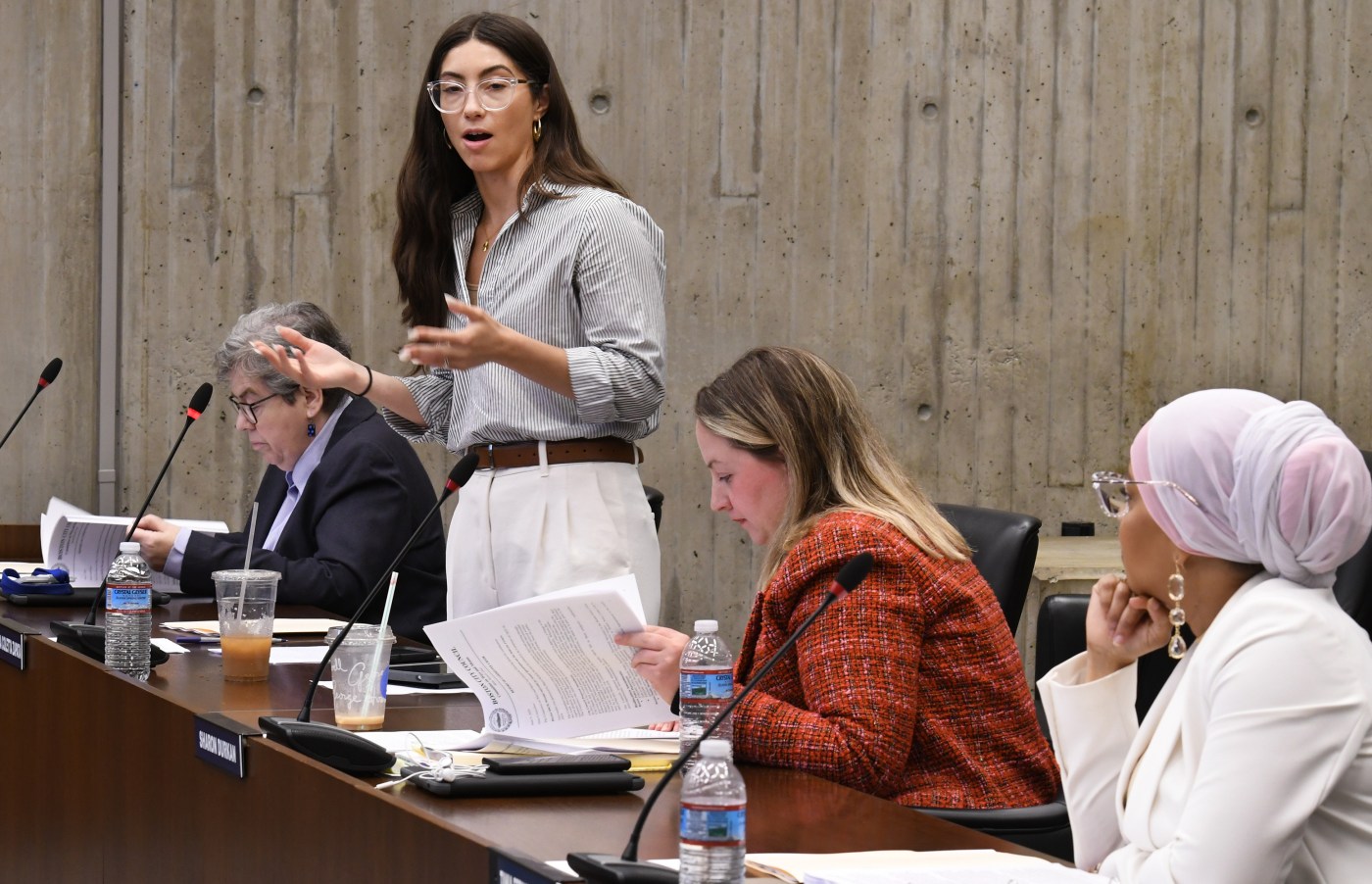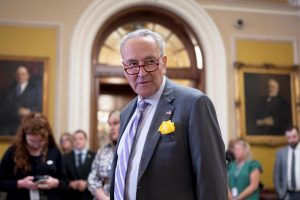
Boston City Council approves mayor’s plan to increase commercial tax rates
Over objections from the business community, the Boston City Council passed a home rule petition proposed by the mayor that would allow the city to increase commercial tax rates for four years to “soften” the blow of higher residential taxes.
The petition passed the City Council by an 8-4-1 vote Wednesday with councilors emphasizing either the need to protect homeowners from projections of a steep increase in property taxes brought on by declining commercial property values, or the desire to prevent more of the tax burden from falling on a business sector already dealing with those falling values and a high rate of vacant office space.
The favorable vote represents something of a political win for Mayor Michelle Wu, who has faced significant pushback from business leaders since she proposed a temporary change in tax classification law in late March, that would allow the city to exceed the state limit of how much of its tax burden can be shifted from the residential to commercial sector — from 175% up to 200% next year.
Once signed by Wu, the petition will move on the state lawmakers on Beacon Hill, where it has already faced opposition from House Speaker Ron Mariano.
“I’m grateful to the Council for approving this residential tax relief provision and look forward to next steps at the state level,” Wu said in a statement. “Our regional housing crisis is the biggest threat to the Commonwealth’s economy, and we need every possible solution at hand to make a difference.
“For seniors on fixed incomes, for families with children, for frontline workers and all our community members, we must have the tools to keep community members in their homes while delivering excellent city services to support residents and businesses,” the mayor added.
The petition mirrors a tiered shift the city implemented two decades ago under former Mayor Thomas Menino, in that it would decrease each year until returning to the standard 175% rate in the fifth year.
The Wu administration, in its push for the legislation, cited figures from the Boston Municipal Research Bureau, a fiscal watchdog group, that showed homeowners could be facing a 16.5% increase in property taxes next year without a change in the shift. Residential taxes would still increase and commercial taxes would still decrease, though not by as much on either front, the mayor has said.
Still, opponents from the business sector argued that raising taxes on commercial properties would not only impact large corporate landlords, but has the potential to price out their small business tenants, by passing on the tax increase as higher rental costs to those restaurants and mom and pop shops. The higher shift would also exacerbate the decline in downtown commercial property values, critics said.
Opposing councilors, Ed Flynn, Erin Murphy and John FitzGerald, also spoke of the need to help a struggling commercial sector, rather than implement a change that would drive businesses away, thereby impacting a city economy that is making strides, but has not fully recovered, from pandemic-era challenges.
“When did we become a city where it’s businesses or residents?” Murphy asked, speaking to the “us versus them” dynamic the plan arguably created. “Aren’t we better than that? Raising taxes on businesses is a really efficient way to get businesses to leave town.”
FitzGerald said the Council should instead focus on tightening up the city’s budgetary spending, making use of its sizable rainy day fund, or look to create new sources of revenue, rather than rely so heavily on property taxes, which make up nearly three-fourths of annual budgetary revenue — one-third of which comes from a commercial sector that owns far less property.
Related Articles
Boston City Council still weighing cuts to the police department ahead of Wednesday vote
Boston mayor, team boast economic rebound amid commercial sector woes
Boston Police, mayor to crack down on ‘unlawful and dangerous’ driving for Uber Eats, DoorDash, GrubHub
Boston raises LGBTQ+ flag, promotes Pride month event lineup
Boston Mayor Wu backs Cartwright for SJC clerk over City Councilor Murphy
Council Vice President Brian Worrell also voted ‘no,’ and although he didn’t speak on the matter Wednesday, he had expressed concerns in prior committee hearings about how the plan would impact small businesses.
Councilor Gabriela Coletta Zapata, who chaired government operations committee hearings on the mayor’s home rule petition, said she put forward a separate ordinance that sought to “protect ‘mom and pop’ small businesses from similar commercial property tax increases by providing a larger exemption.”
Coletta Zapata said, however, that the Wu administration has “noted the lack of oversight in ensuring the exemption would successfully be passed on to the small business tenant by their landlord and expressed the need for more data.”
The Council vote quickly drew rebukes from the MassGOP and Boston Policy Institute, but councilors who voted in favor, Liz Breadon and Sharon Durkan noted that approval of the legislation doesn’t mean it has to be used, or that the city needs to shift to that full 200% option in the first year — it would simply be a new tool.
Also voting in favor were Councilors Coletta Zapata, Tania Fernandes Anderson, Enrique Pepén, Henry Santana, Benjamin Weber and Council President Ruthzee Louijeune.
Councilor Julia Mejia voted ‘present,’ thereby abstaining from taking a position.


